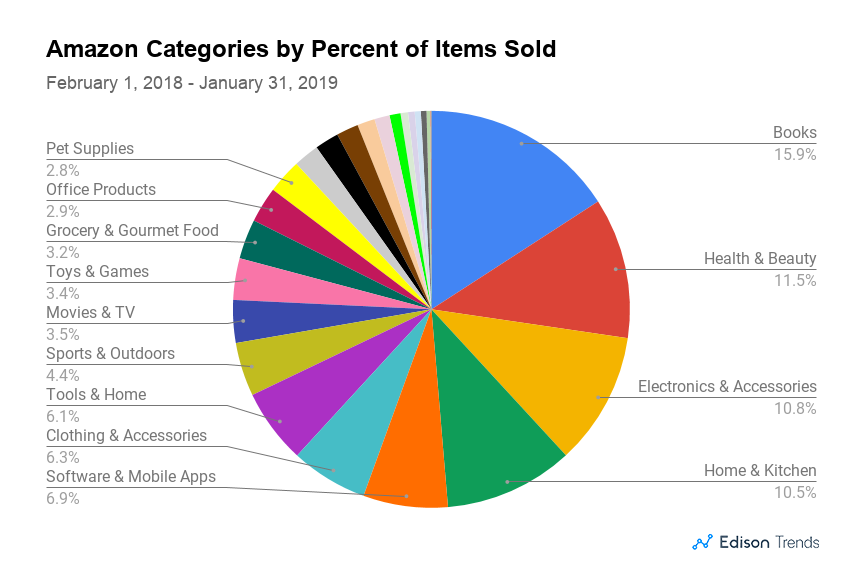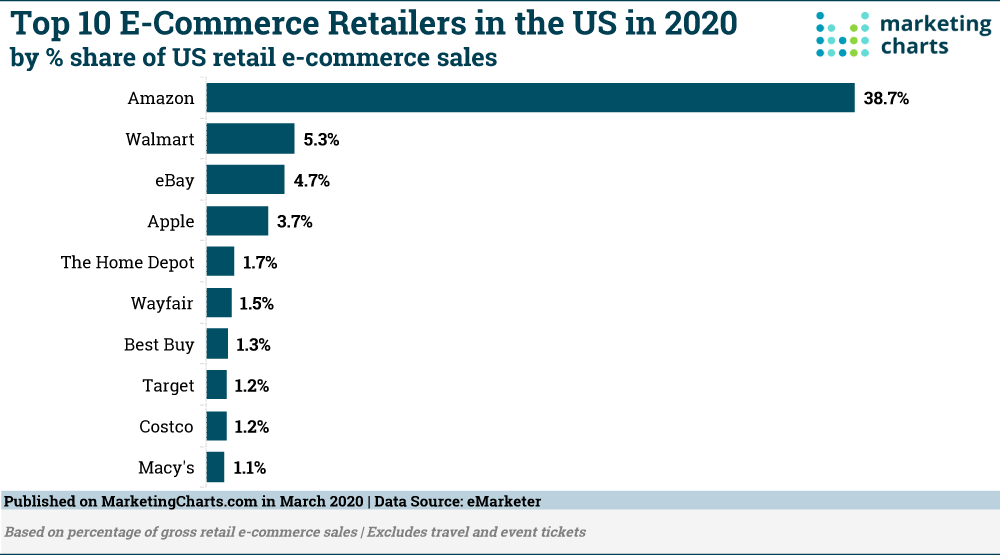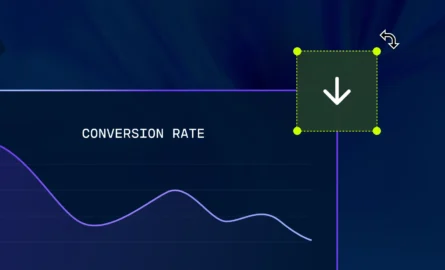The Pros and Cons of Creating a General Store vs. a Specialty Store

There are essentially two types of ecommerce sites: general stores that sell a broad range of products, and specialty stores that focus on a particular niche. If you’re interested in opening up your own online store, this is one of the first things you’ll need to consider.
Ask yourself this question: How many different types of products will I sell? The choice you make here may very well determine whether your store succeeds or fails.
In this guide, we’ll go over the factors you should take into account when making this decision.
The Pros and Cons of Creating a General Store
The most successful ecommerce companies in the world, such as Amazon and the Alibaba Group, operate general ecommerce stores. And the fact that they sell just about every kind of product you can imagine has played a key role in their success.

The logic behind this strategy is simple — providing a wider selection of available products increases the odds that any given visitor will be interested in what you have to offer, which leads to more sales.

The other benefits of general stores include:
- Less Risk: Think about mutual funds, which are known to be one of the safest ways to invest. Instead of putting your money into one or two or even a dozen companies, most mutual funds involve well over 100 different securities. A general store reduces risk in the same way: When you sell many different types of products, you can afford for some of your items to not have great sales figures. It all balances out.
- You’re Free to Follow the Trends: Not tethering yourself to a particular niche also gives you the freedom to take advantage of trends while they’re still popular. For example, the COVID-19 pandemic caused sales for green screens to double, as they allowed users of the popular teleconferencing app Zoom to get more creative with their backgrounds. A general store could add green screens to its product line without a second thought, but a specialty store for something unrelated (health & fitness, vintage clothes, etc.) couldn’t do so without muddling the brand identity it worked so hard to establish.

However, you also need to consider disadvantages associated with general stores:
- Modest Profit Margins: With lower risk comes lower rewards. General stores can expect a good portion of the revenue they generate from their high-selling products to be offset by their losses from low-selling products.
- Time Commitment: You’ll need to put in a good amount of work for every product you sell — to start, written copy for product details and descriptions, and high-quality photos and videos to give customers a good look at what you have to offer. The more products you sell, the more time these tasks will take you.
- Storage Needs: If you’re successful, eventually you’ll need to expand out of your own garage and invest in either your own warehouse space or the services of an order fulfillment company. For example, Fulfillment by Amazon charges a monthly fee of 75 cents per cubic foot for storing standard-sized packages from January to September (this rate goes up to $2.40 per cubic foot from October to December). If you sell a lot of products, you’ll need a lot of space to store them — these costs can really add up over time.
- More Competition: There are about 7.1 million online stores in the world, which includes 1.8 million based in the United States alone. By selecting a niche, specialty stores are able to at least significantly narrow down the number of other merchants they’re competing with. But with general stores, there are more sellers targeting the exact same customers as you. And remember, ecommerce is a zero-sum game. Any sale that one of your competitors makes is a sale you could’ve made but didn’t.
The Pros and Cons of Creating a Specialty Store
Amazon may be a general store now, but it didn’t start out that way.
When Jeff Bezos founded the company in 1994, he didn’t have a specific product line in mind. He just figured it would be wise to get in on the ground floor of the ecommerce industry, which was growing at a rate of 2,300% at the time.
Bezos settled on books not because he had a passion for reading, but because they were particularly easy to store and ship. The rest is history — and without Amazon’s initial success as a specialty store focused on books, it wouldn’t have been able to grow into the trillion-dollar general store it is today.
It’s true that, as mentioned above, the biggest ecommerce businesses are general stores. But, it’s also the case that many highly successful ecommerce businesses are specialty stores.
Of the top 10 ecommerce retailers in the U.S., four are specialty stores (Apple and Best Buy are focused on technology, Home Depot on construction/DIY supplies, and Wayfair on furniture/home goods).

On a smaller scale, there are even single product stores (for example, Dryrobe and ShakeSphere) that don’t offer visitors anything more than just a few variations of and accessories for one item.

The benefits of specialty stores include:
- Easier to Brand: It’s worth pointing out again that there are millions of stores on the internet. With all that competition, how are you going to stand out? One way is to simply cut down on the selection of products you offer. Then, you can highlight this focus in your advertising materials and use it to create a clear brand identity.
- Inspires Customer Loyalty: Indeed, with the clear brand identity that having a specialty store provides, customers will have a much easier time remembering that you’re an option for future purchases. It gives them a reason to remain loyal to your brand, too — it only makes sense that a store specializing in a type of product would be able to provide higher quality and better customer service than a general store that just happens to also sell that type of product.
- Better Ad Performance: One issue with general stores is that they tend to get a lot of irrelevant traffic. People will often stop by to check things out and then decide they’re not interested. That issue gets expensive with pay-for-click ads, which involve merchants being charged each time someone clicks through to their site. But this is much less of a problem with specialty stores, as people will know what to expect before they make their way over to your site. So, you’ll likely end up with a bigger return on your investment in advertising.

And the disadvantages of specialty stores include:
- Higher Risk: There’s no telling when a product category will become more or less popular than it used to be. Returning to COVID-19, the pandemic certainly proved this point to the sellers of luggage, swimwear and camera equipment, as their sales tanked when widespread lockdowns led to the cancellations of countless vacations. Less dramatically, consumer tastes are always changing, and one day they just might leave your products behind.
- Exposure to Seasonal Swings: Earlier, we also touched on the fact that Amazon charges higher rates for storage in the last quarter of the year than they do in the first three quarters. That’s because there is much more demand during this quarter than the others, especially in the stretch from Black Friday/Cyber Monday to Christmas. And on top of that, the nature of your product type may be vulnerable to seasonal swings as well (for example, good luck selling barbeque grills in the winter or coats in the summer). If you go through an extended sales drought, will you be able to afford it?
The Final Verdict
After taking in all this information, you still may be asking yourself: if you’re interested in starting an ecommerce site, should you set it up as a general store or specialty store?
The answer, of course, is that it depends.
The biggest factor that should affect your decision is risk. Are you willing to swing for the fences, or would you rather play it safe?
If you’re risk-averse, a general store will be your best option. Conversely, if you have the will to risk higher losses in exchange for a chance at higher profits, you should probably go with a specialty store.
Finally, keep in mind that this decision isn’t set in stone. Like Amazon, you can always expand from a specialty store into a general store in the future. Or if you decide on a general store, down the road you may find yourself shedding low-performing items from your product line in order to dedicate more focus to what’s generating the most revenue.
At the end of the day, it’s all about the bottom line.

Adam Ritchie
Adam Ritchie is a writer based in Silver Spring, Maryland. He writes about ecommerce trends and best practices for Shogun. His previous clients include Groupon, Clutch and New Theory.



